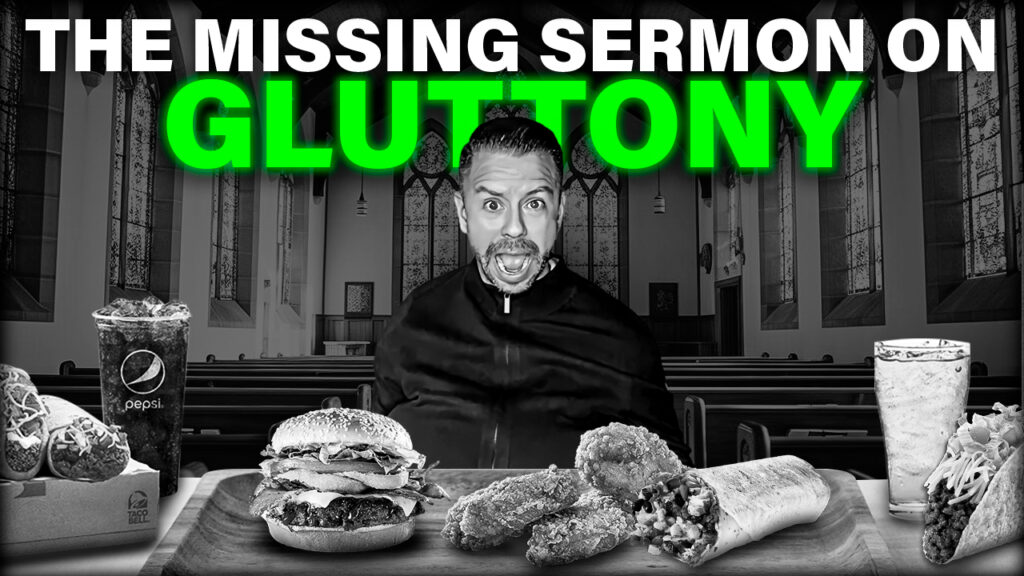Unpacking the Overlooked Sin of Gluttony in Christian Life
In today’s exploration, we delve into a rarely discussed but increasingly relevant topic: the absence of a robust theology of food within Christian discourse.
Hosted by Coach JT Tapias on his show, “An Idol Called Food,” the latest episode sheds light on why this oversight might be contributing to significant health issues among Christians, including obesity and its complications.
The Missing Sermon
Coach JT Tapias begins by highlighting a critical observation: sermons often sidestep discussions about gluttony, despite its evident prevalence in our congregations and leadership.
The stark reality is visible among church leaders whose health visibly suffers due to poor dietary habits. This oversight is not just a matter of physical appearance but a serious impediment to effective ministry and personal well-being.
The consequences extend beyond the individual, affecting the community’s ability to serve and grow spiritually. When leaders are hindered by health issues often preventable through better nutrition their capacity to shepherd their flock diminishes.
This scenario poses a question worth pondering: if the body is a temple of the Holy Spirit, are we honoring God with our dietary choices?
Theology of Food
One of the most compelling points Coach JT Tapias makes is the need for a developed theology of food.
Christians talk extensively about sins like envy and greed, yet gluttony seldom makes it to the pulpit. This absence speaks volumes about our priorities and perhaps our discomfort in confronting this pervasive issue.
Coach JT Tapias argues for a structured theological framework that views food as a spiritual discipline.
Such a framework would not only educate but also provide practical guidelines on how to honor our bodies as temples of the Holy Spirit.
Scripture like Romans 12:1, which calls for presenting our bodies as a living sacrifice, holy and pleasing to God, supports this notion. This passage, among others, could serve as a cornerstone for constructing a theology that integrates physical stewardship with spiritual devotion.
Practical Steps Towards Change
Understanding the problem is one thing; acting on it is another.
Coach JT Tapias, suggests starting with awareness and education, drawing on scriptural backing to craft a message that resonates and convicts.
He proposes that pastors and leaders begin addressing these issues openly, setting a precedent for their congregations.
Moreover, individuals are encouraged to re-evaluate their daily choices. Are we merely asking blessings over our meals without considering their suitability for our bodies?
Instead, we should select foods that truly nourish and support our health, aligning our physical practices with our spiritual values.
Community Engagement and Discussion
Coach JT Tapias calls for a communal response to this issue. By fostering open discussions and sharing experiences, communities can begin to shift their cultural approaches to food.
Engaging in these conversations on platforms such as church groups, online forums, and during fellowship can spur change and create accountability.
Conclusion
As we reconsider our dietary habits through the lens of faith, let’s embrace the concept of food as a crucial aspect of our spiritual discipline. It’s time to bring the conversation about gluttony and health into the light, challenging ourselves and our leaders to embody the holistic wellness that scripture advocates. As Coach JT Tapias poignantly reminds us, changing our mindset about food will not only improve our physical health but also deepen our spiritual lives, making the body of Christ a healthier, more vibrant community.


